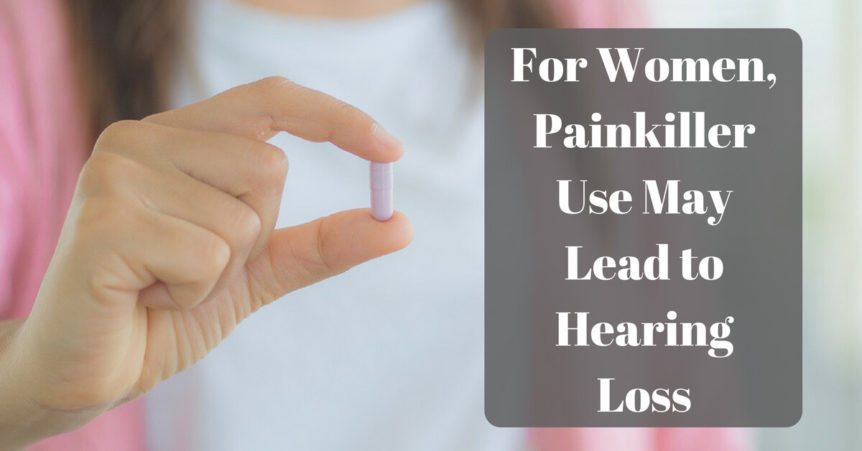If you’re a woman seeking some mild pain relief, think twice about which bottle you reach for in the medicine cabinet. In a study funded by The National Institutes of Health and conducted at Brigham and Women’s Hospital, certain painkillers at higher incidence were linked to increased hearing loss.
NSAIDs on the rise
The use of nonsteroidal anti-inflammatory drugs (NSAIDs) has increased over the past two decades. In 2010, around 19% of American adults took aspirin regularly and 12% were regular users of NSAIDs. If we were to compare those numbers to the ones available in 2005, we would see a 57% increase in aspirin use and a 41% increase in general NSAID habits.
Some physicians attribute the popularity of these drugs to its double duty, as they both reduce pain as well as inflammation. Even when one symptom is present without the other, you’re still medicating out of the same bottle. It’s easy to see how people can rely heavily on these valuable little pills to manage moderate pain and inflammation at home.
Study findings
The study itself specifically found that women who took ibuprofen (Advil) and acetaminophen (Tylenol) had a higher risk of increased hearing loss. Aspirin was not found to have an associated risk. These findings resemble similar findings done in a study linking men’s hearing health and analgesics.
Dosage and regularity may play an important role is determining whether you’re also at risk of hearing loss by using these everyday pain or inflammation solutions. Taking NSAIDs regularly as a way to self-treat minor aches and pains might not be the safest route to follow. The study found that over the course of six years, it increases your risk of hearing loss by 10%.
Potential causes
Reasons for this could be varied and have not been scientifically proven. However, it is thought that reduced blood supply to the cochlea, or inner ear, as a result of taking the drug may damage hearing functions in the long run. Further, paracetamol (Tylenol) is also believed to deplete antioxidants within the ear. This results in more vulnerability of the cochlea to noise-induced damage.
How to reduce your risk
No need to completely clear out the old medicine cabinet just yet, though. Of course, researchers responsible for the study described the correspondence of painkillers and hearing loss as “moderate.” However, senior author Dr. Gary Curhan also stated, “Hearing loss is extremely common and can have a profound impact on quality of life. Finding modifiable risk factors could help us identify ways to lower risk before hearing loss begins and slow progression in those with hearing loss.”
Seek alternate solutions first
Perhaps you might add this advance warning to your list of other healthy hearing habits you take every in order to preserve your hearing for the future. Instead of reaching for the Advil or Tylenol, consider alternative treatment. For instance, many arthritis sufferers depend on daily pain relief. However, in a double-blind clinical trial conducted by New York’s Presbyterian Hospital and Cornell University, arthritis patients given turmeric reported a significant decrease in inflammation. It might always give you the relief you’re seeking, but it’s a good first step to take that won’t leave you with a host of potentially harmful side effects.
There is a wealth of information on natural remedies for common types of moderate pain. Seek counsel from a holistic medical practitioner if you need further resources.
Every day precautions
It’s important to remember that eliminating Advil won’t absolutely prevent eventual hearing loss, but moderating your usage is still a good, healthy habit to develop. Other healthy hearing habits include paying attention to and regulating the volume levels in your life. Next time you’re in the car with someone, note the volume level of the radio needed to maintain easy conversation. That’s exactly the level it should remain when you’re alone. You can go ahead and bump it up a bit when your favorite song comes on, but don’t forget to usually maintain a reasonable volume.
Another excellent way to protect yourself from future hearing loss is to limit your exposure to excessively noisy situations. When that’s not possible, take extra steps to reduce the level of sound that makes it to your ears by wearing a good set of earplugs. Our hearing health is a delicate gift, make sure that you’re properly preserving it for a healthy hearing life.
For more information, and to take your annual hearing test, contact us at Neighborhood Hearing Aid Centers.

